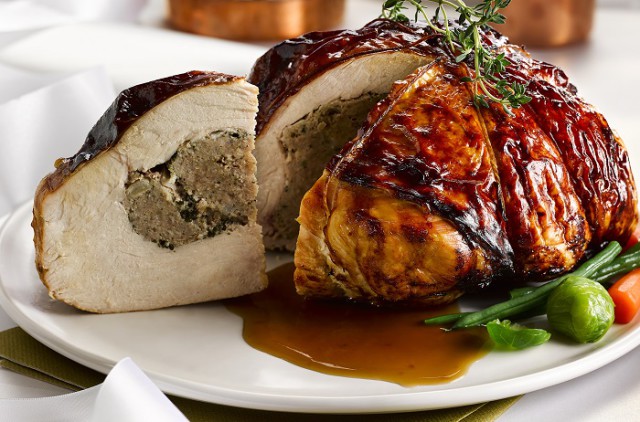The Food Standards Agency has revealed it has uncovered ‘widespread and systematic’ breaches of food hygiene regulations at a major meat and poultry supplier. Wetherspoons has already gone elsewhere for its meat; other customers are following suit. So, what does the future hold for Russell Hume?
The first indication anything was amiss was when the pub chain JD Wetherspoon put up notices on the doors telling customers its hugely popular weekly steak night was cancelled due to ‘quality issues with our meat supplier’.
The regular Tuesday night event usually shifts 90,000 steaks for the UK’s biggest pub chain and is a major draw for regulars looking for a bargain meal and drink.
But it wasn’t until several days later it was revealed one of the UK’s biggest wholesalers of meat, poultry and game had been temporarily shut down by the Foods Standards Agency (FSA) after an unannounced inspection at its Birmingham site revealed “concerns about non-compliance with food hygiene regulations.”
Russell Hume, which also supplies Jamie Oliver’s restaurant chain, was forced to open up all its sites and cold stores to a more detailed audit by the FSA. The findings were not good.
All product was stopped from leaving sites operated by Russell Hume immediately and a recall was issued.
“Based on the evidence gathered we became concerned that there was a more systemic and widespread problem which was more serious in terms of its scale and nature,” the FSA said. “It was only at this stage issues of serious non-compliance were uncovered. These related to a number of issues including concerns about procedures and processes around use by dates. There is no indication that people have become ill from eating meat supplied by Russell Hume.”
The Jamie Oliver Group says it immediately switched to a different supplier as soon as it became aware of the recall notices. A Jamie’s Italian spokesman said: “All Russell Hume meat was removed from restaurants as soon as we were notified. We also immediately switched suppliers.”
Russell Hume is based in Derby and has annual sales of £131 million, according to the latest financial results filed with Companies House for the year ending March 2016. It supplies hotels, restaurants and pubs with meat and poultry and made a profit after tax during the same period of £2.9 million. It has 395 staff.
The directors are listed as David Holding, Katherine Holding, Patrick Hirlihy, Richard Kay, Pirtpal Purewal, Alan Pearce, Eamonn Travers, and Ian Gould.
David Holding is the chairman and according to the financial results, he has a ‘controlling interest in the equity share capital of the company’ and is therefore the ‘ultimate controlling party’ of Russell Hume.
Holding’s chairman’s statement in the most recent financial results describes the business as having had a ‘successful, but tough’ year in 2016, and reveals profit margins before tax were 2.8% for the year, although the plan was to improve this figure. “For the forward investment that is required, and the service and effort that we offer, we need to target 5%, and need to achieve this by constantly reducing waste and tight overhead controls,” he wrote.
“At the time of writing this report I can confirm the year so far has been extremely challenging and there has been a significant effect through the Brexit vote on exchange rates which have had a direct effect on the price of meat, game and poultry into the market.”
The FSA has been keen to stress is can’t go into any more detail about what exactly it found during its inspection because of the risk it “could potentially jeopardise future enforcement action”.
It would only say Russell Hume has been required to stop all production at the plants and detain all products. “Until the business can provide assurances that they are complying with the relevant legislation and that they are producing safe food, no meat can leave their sites.”
Jason Feeney, Chief Executive Officer of the Food Standards Agency said: “We don’t take decisions to stop production, instigate product recalls or withdrawals lightly.
“Our job is to ensure that food produced by a business is safe and clearly we must take a proportionate approach.
“We do recognise the potential impact of our decisions on business and peoples’ livelihoods. In the Russell Hume case our own unannounced inspection at one site gave us some cause for concern about non-compliance with food hygiene regulations, it was not triggered by any reports of ill-health.
“We then looked right across this UK-wide business and concluded that the non-compliance was serious and widespread enough to advise stopping all production at Russell Hume plants and initiate a withdrawal of products. We worked with the company to get this done as quickly and effectively as possible and our actions have been proportionate based on the evidence we have obtained.
“As the company have not been able to demonstrate they have a sufficiently robust management system in place it is absolutely right that we have taken these appropriate actions.”
Russell Hume has now been allowed to resume production at its Liverpool site, but Poultry Business could not reach the company for comment. The scale and impact on the business remains to be seen. But even if systems are completely overhauled, it seems likely the reputational damage will last well beyond the temporary closure of the business.


